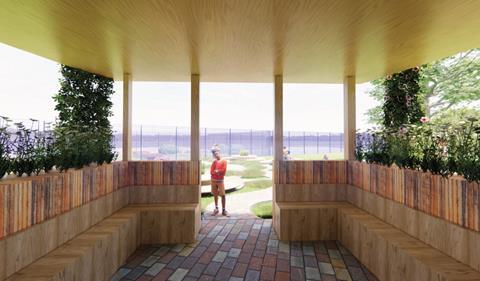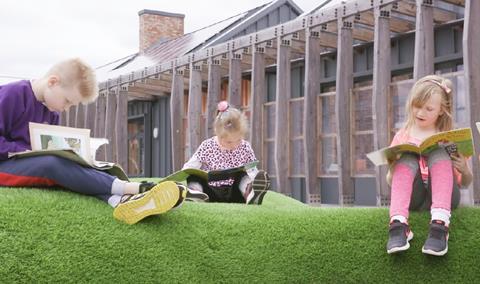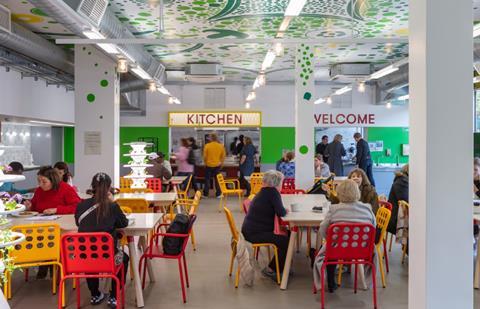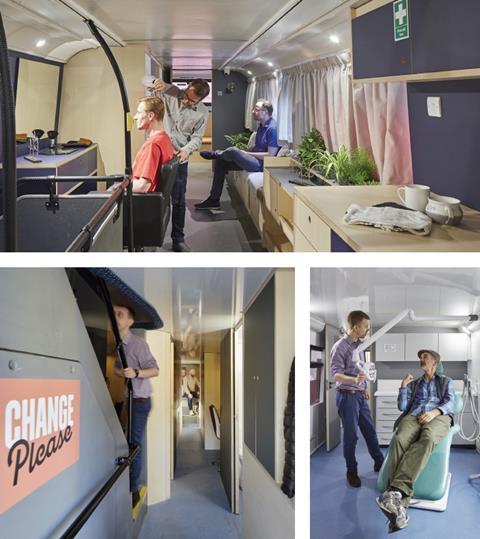In a series celebrating BD’s Architect of the Year Awards finalists, we look at the Social Impact Architect shortlist
In July BD announced all the architects who made it on to the shortlists for our prestigious annual Architect of the Year Awards.
Now we are shining the spotlight on each category in turn and publishing a selection of the images that impressed the judges.
This year’s judges include: Maria Cheung, Director and Head of Interior Design, Squire and Partners; Julian Robinson, Director of Estates, LSE; Bernadette Cunningham, Director, Thornsett; James McCosh, Partner, van Heyningen & Haward Architects; Michál Cohen, Director and Co-founder, Walters & Cohen Architects; Edmund Fowles, Director and Co-founder, Feilden Fowles; Manisha Patel, Senior Partner, PRP and Rafael Marks, Principal, Penoyre & Prasad.
Today’s shortlist is Social Impact Architect of the Year Award.
Atkins

Atkins submitted a sustainable development project in Kenya, a women’s open unit for the Ministry of Justice and a school in Manchester.
As part of Atkins’ social value commitments it has undertaken a pro bono design for an outdoor classroom facility at Haveley Hey Community School. It has one of the highest numbers of Looked After Children (LAC) in any Manchester school.
The children have been involved in the design process and are committed to maximising sustainability and biodiversity, providing an important micro-climate for insects, bird life and other species. Other elements of the design include bee and bug hotels, water recycling features and careful selection of natural materials. These features will increase the wildlife in the school’s urban area and allow the positive impact of nature first-hand.
HLM

HLM’s submission included two schools in Wales.
Ysgol Pen Rhos regenerates a once derelict industrial site that was highly contaminated and prone to anti-social behaviour. It is now a thriving learning environment that can be shared with the community, improving wellbeing and inspiring the next generation of learners in one of Wales’s most socially and economically deprived areas.
The new school acts as a catalyst for regeneration and has become a real driver for economic benefit and change in the local area.
The school has greatly benefited families in the local area, and these positive outcomes of the build have also extended to the wider local community. It was essential that, as part of the scheme, local suppliers and SME’s were used and this led to 25 previously unemployed people being employed, 31 apprenticeship opportunities secured, and 82% of the contract value for goods, services and overheads spent with businesses based in Wales. The result positioned Ysgol Pen Rhos as a catalyst for regeneration, and a driver for economic benefit and change in the local area.
RCKa

RCKa’s submission included a community food hub in Shepherd’s Bush, a neuro-disability care centre in Surrey, and a community centre in Highgate.
The London Borough of Hammersmith and Fulham has the highest dependency on food banks in London and a significant number of people are food insecure. The Nourish Hub seeks to address this with a centre to provide meals from rescued food, education about food prep and food waste and opportunities for volunteering and participation.
The local community was actively engaged in the creation process, making their input visible in the design and operation of the Hub. Through the co-creation process with 200 community members and 20 community organisations, we identified key asks and needs from the local community linked to enhancing social value and equality, diversity, and inclusion. These were embedded in the operational business plan, which the GLA recognised as exemplar, later using the project as a case study in embedding social value in all project stages.
The Hub has an open and welcoming relationship with the street, incorporating servery windows, direct views into the kitchen and a generous 3x4m sliding opening. Inside there is office space and two kitchens serving different functions, a fully-fitted catering kitchen for professional training and batch cooking for food distribution; and a teaching kitchen used by people of all ages and abilities. Other design features enhance participation and add flexibility - for different types of events, future uses and groups who may require specific cultural provisions.
tp bennett

The Driving for Change initiative is an all-in-one direct intervention service providing those experiencing homelessness access to free GP consultations, haircuts, dental care, digital and financial literacy training, support opening a bank account where appropriate, employment support, shower facilities, therapy assessments, and essential everyday items.
Working in partnership with the Change Please Foundation, tp bennett has repurposed two London buses, transforming them to support people experiencing homelessness. Welcoming ‘cocoon’ spaces at a domestic scale have been created, promoting a sense of belonging that is crucial to the concept. The bespoke sanctuary space has been designed for guests to feel safe and comfortable. Plywood joinery details and a base palette of calming cues are complimented by bright and uplifting street art, designed and sprayed by Bud Studio, which lines the walls at the entry point and up the stairwell, enlivening the transient areas.
Postscript
The awards will be held at The Brewery in the City of London on 18 October. Book your place here
















No comments yet